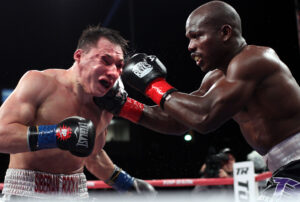The heartbreaking death of Maxim Dadashev has shook the boxing world to its very core. In what seems like a whirlwind few days, the late Russian went from being Top Rank’s high-profile undefeated prospect with a huge amount of potential – not to mention a loving family man – to tragically being spoken about in the past tense.
After suffering a punishing defeat to the similarly impressive Subriel Matias, Dadashev collapsed and later passed away – leaving behind devastated friends, loved ones and stunned fans.
As expected, Dadashev’s tragically untimely demise has prompted heated debate in certain quarters regarding possible infrastructural and institutional changes that need be must to increase safety in boxing, and some have even questioned the legitimacy of the sport itself.

What is not being addressed, however, is the subject of whether fans themselves should perhaps reassess their attitudes towards the fighters they follow.
Indeed, the styles and approaches fighters adopt in the ring are as diverse as the preferences of the fans that follow them outside of it. Some fans are partial towards economical slicksters, others are partial towards rangy boxer punchers, others towards ‘Rocky Balboa’-style sluggers whereas some (perhaps the overwhelming majority) favour concussive knockout artists.
Unfortunately, there exists a culture among boxing fans – perhaps not a new one, but an increasingly vocal one, nevertheless – where defensive fighters are not only dismissed and disregarded outright, but sometimes vilified.
Is it right or fair to begrudge a safety-first approach in one of the world’s most dangerous sports? Not really. Are defensive fighters deserving of more empathy from the fans? In the context of boxing-related injuries and fatalities, the answer should be a resounding ‘yes’.

In somewhat uncharacteristic fashion, ‘Desert Storm’ abandoned the athleticism and skillset that enabled him to unify world titles a division below; instead exchanging punches with reckless abandon in what ultimately transpired to be the most unnecessarily punishing fight of his career.
In the immediate aftermath, a visibly concussed Bradley was able to bask in the adulation from the same fans who had previously despised him. By his own admission, however, he was ‘pissing blood’ after the fight – a fight which, it is reasonable to suggest, may have taken years off his career.
Does all of the above really define a fighter’s validation? Can we not extend the same admiration to those who are able to skilfully navigate their way through the most dangerous of professions with composure and poise? It appears not.
Naturally, fans will always be inclined to lionise those who fight in a manner that can be described as kamikaze or uber-aggressive; that is, high-output and high-intensity, something which sometimes but not necessarily always entails neglecting any notion of defence or self-preservation instincts. This is perfectly understandable as these types of fighters, by their very nature, generally serve up the most exhilarating contests that the sport has to offer.

However, other fans also find it equally enjoyable to see a fighter showcase his skills and intelligence; outfoxing his counterpart with superior timing, accuracy and strategy. Whatever the case, it is certainly not educated for fans to vilify or disdain those fighters who choose not to take unnecessary risks or sustain pointless punishment, having already consolidated an unassailable lead on the scorecards.
Therefore, the onus instead surely should be on the losing fighter who is simply not good enough to get the defensive fighter out of their comfort zone, or perhaps on the matchmaker for not putting together a sufficiently competitive matchup.
Boxing is a combat sport, and will always attract a bloodthirsty audience for this reason. However, although boxing cannot be ‘played’ in the same manner as other conventional sports, it still remains a sport.
And the most intriguing aspect of one-of-one sport should be to see who is fundamentally better and who is able to impose their strategy on their opponent, as opposed to the other way round. It is simply not reasonable for fans to denounce boxers already in a comfortable position in a fight as they have no need to show anything more.
Article by: Navi Singh
Follow Navi on Twitter at: @DarkMan________